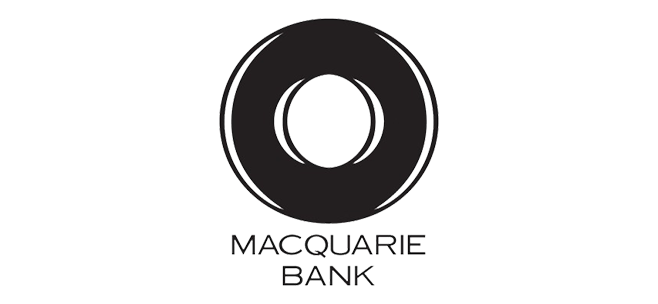In particular we focus on getting the loan structure right the first time, choosing which lenders to use in the right order (yes this is important) and finally getting our clients the best deal possible.
90% Investment Loans with Interest Only Repayments + 90% Home Loans
90% home loans for investment with interest only repayments are only offered by a few select lenders. While they are not as prevalent as they once were, they are still a great way to get into the investor market without having to cross-collateralise your owner-occupied property. It also allows first time buyers who either live at home or rent themselves with smaller deposits to break into the market. Aka “rent-vestors”.
We are seeing far more loans at above 90% being declined due to adverse credit scoring whereas 90% home loans especially 90% investment are less likely to be auto declined by the major banks' scoring systems. The reason for this is borrowers are putting in a 10% deposit or providing a property with at least 10% equity which is viewed by lenders and the mortgage insurers as considerably safer than say ninety five percent loans.

90% LVR loans are available for most uses, including owner occupied purchases, investment purchases, debt consolidation and refinances. Some lenders will also allow some equity release or "cash out". Most will require P&I repayments but as mentioned a select few will allow 90% investment interest only repayments.
In the current environment with most lenders not offering interest only above 80% it’s a good time to enlist the help of a knowledgeable mortgage broker who knows the lenders and their policies.
90% home loans with no genuine savings
For those looking to purchase a property a select few lenders will allow 90% home or investment loans without genuine savings this includes interest only repayments. An adverse credit score thus resulting in a loan decline can be an issue when you have no genuine savings so please talk to us first to get a gauge on whether your application will be approved.
Great news recently, as anticipated a few lenders have really started to gain an appetite for 90% no genuine savings home loans again. One in particular is proving very willing to underwrite these types of loans. Your deposit can virtually come from anywhere (as long as it’s not a personal loans or other borrowed funds).
Click here to enquire about a 90% no genuine savings home loan.
90% home loans with cash out / equity release
Refinancing to get additional funds to be paid directly to the borrower is called "cash out". This along with refinancing is seen by lenders as much more risky than lending solely for the purpose of buying a property. Gone are the days of just saying you want funds for "future investment purposes". This is no longer a sufficient explanation.
Getting cash out with a 90% home loan is not impossible with some lenders but it does require a thoughtful application and explanation of the proposed use of the funds. We like to say a 90% home loan with cash out has to pass the "sniff test". The sniff test is mortgage broker and credit assessor slang to describe if the stated purpose of the cash out makes sense, whether the amount required seems reasonable and for amounts above say $50,000 whether there is documentation supporting the purpose. Unfortunately for the self-employed getting cash out can be more difficult than for those who work as employees.
There is no hard and fast rule when it comes to 90% home loans and cash out. It is very much on a case by case basis. If you require advice in relation to whether a cash out purpose would be acceptable please don't hesitate to contact us for our honest opinion.
90% Investment Loans
Often 90% investment loans are a good compromise for investors that are:
- Not comfortable with gearing a loan to 95% but are comfortable with putting in less than a 20% deposit.
- Looking to preserve some of their available funds to allow them to purchase another property down the track. For example an investor may have $100,000 in cash available and decide to buy two properties geared at 90% rather than just one at 75%.
- Hesitant to pay the sometimes excessive mortgage insurance that comes with a 95% investment loan.
90% home loans and lenders mortgage insurance (LMI)
When deciding if a 90% home loan is right for you often one of the major considerations is the cost of mortgage insurance. 90% home loan are definitely a line in the sand so to speak as compared to a loan to value ratio above that. The cost of mortgage insurance really drops if you can make it to a 90% loan as compared to even slightly higher loan to value ratios. Usually the mortgage insurance premium can be added to the loan amount taking the loan above 90% but the premium is usually calculated at 90% meaning the borrower needs to come up with 10% towards the purchase plus cover the related purchase costs such as stamp duty and legal fees.
To illustrate at an LVR of 90% for a $350,000 investment loan amount the mortgage insurance premium would typically be around 2% of the amount borrowed so around $8575. This compares to a 91% loan to value ratio where the premium jumps to $12,040 and jumps further to $15,015 for a 95% home loan. So, you can see scrapping together a bit more deposit can save you a lot in mortgage insurance!
Are 90% home loans more expensive?
Over the last few years lenders have increasingly priced their loans based on the two metrics. The loan amount being borrowed (or the aggregate loan amount with that particular lender) and the loan to value ratio. The best % rates are usually available to sub 80% or 75% LVR loans and for loans over a certain size.
In short for 90% home loans you can expect to pay good interest rates but perhaps not the market leading rates. There are sometimes currently exceptions to this, so it can pay to ask before you commit.
So which 90% home loan is best for you?
When purchasing a property, having genuine savings or not having genuine savings will be one of the keys to determining which lenders will want your business and on what terms you will be able to secure your loan. With other purposes such as refinancing or debt consolidation it will depend on specific lender's policies.
At Mortgage Experts we can assess your unique situation and find you the lender and loan which best serves you.
Want to get a better idea where you stand? Call us or enquire online.
Our Current Lender Panel










































